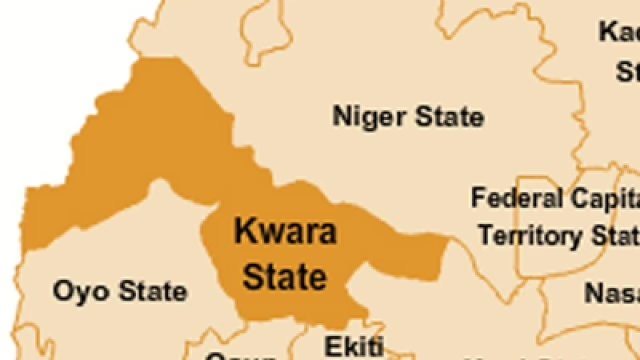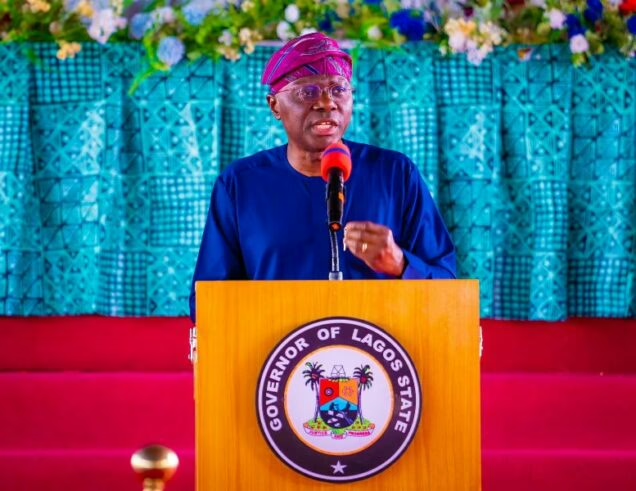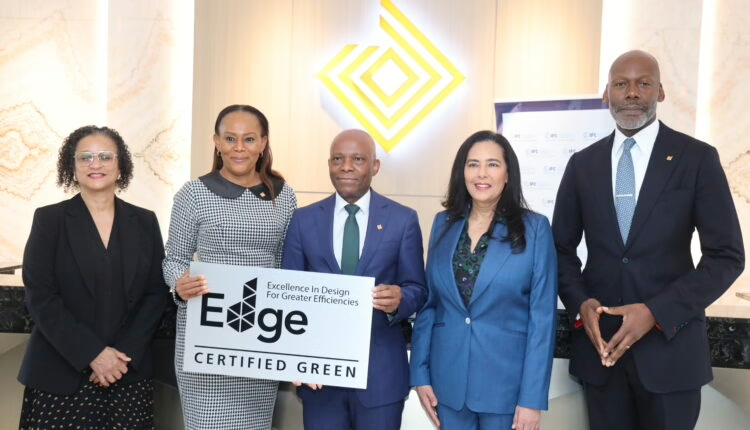By Nehru Odeh
Professor Peju Layiwola, an art historian in the Department of Creative Art, University of Lagos loves and lives art. Not only does she have a distinguished academic career as an artist and teacher of art and art history, she has succeeded in taking art not just into the street but also in elevating our local fabrics and textiles, especially adire to an art form recognized locally and internationally.
In 2019, as part of the many workshops, exhibitions and trainings she has done, She organized a groundbreaking exhibition at two venues in Lagos to showcase the incredible work she had done and continues to do with adire.
That exhibition and the fantastic works she has done with adire inspired a book entitled Peju Layiwola’s Indigo Reimagined: Rethinking Adire in Yoruba Fashion and Textile Modernity, which was edited by Patrick Oloko. That book was presented to the public at Ashluxury in Lekki, Lagos recently.
Distinguushed guests at the book presentation included: Prof. Ayodele Atsenuwa, Deputy Vice-Chancellor, University of Lagos;.Prof. Bruce Onobrakpeya; Professor Ebun Clark;. Professor Dele Layiwola; Omooba Yemisi Shyllon; Prof. Patrick Oloko and Ms Lara Ige.
But why much ado about adire, a fabric many erroneously look down upon? Layiwola, who learnt art from her mother who was always taking her to workshops in Benin City, and has succeeded in making adire acquire a deep historical and cultural significance believes adire is more than a mere fabric, and that it encompasses the totality of the people existence with deep cultural meanings. Professor Peju Layiwola poses with her new clothing collection at the headquarters of Ashluxe boutique in Lekki, lagos
Cloth is like a second skin. And I think that because of the very presence of fabric in our lives, it’s gained a lot of currency. And it also something to celebrate. Fabric has always played a vital role, and has also been incorporated into proverbs, idioms and all of that, in the importance of communal life, which is also expressed in the processes of the art itself. Because people talk about Eniyan ni aso mi, which, translated into English means: ‘People are my covering, people are my cloth,’” She said in an interview with TheNEWS and PMNEWS.
Still, many are enamoured by the incredible work Layiwola is doing not just with adire but in bridging the gap between town and gown as well as theory and practice and in making the world recognise the ‘art’ in what is generally known as arts and crafts.
Prof. Bruce Onobrakpeya, an internationally renowned artist, sculptor and printmaker and the brain behind the Agbarha-Otor Harmattan Workshop, praised Layiwola for the great works she is doing in both the formal and non- formal education sector.
“Peju Layiwola is important in the formal education sector and the informal education sector. She helped to start the Agbarha- Otor Harmattan Worshop, which is now also providing professors and doctorate degree holders and people who are contributing to the formal education sector, space,” Onobrakpeya said.
Omooba Yemisi Shyllon, who said he owes Layiwola a lot, was full of praise for both her and her husband, Prof. Dele Layiwola for their contributions to intellectual development and the development of culture. Professor Ebun Clark, Professor Ayodele Asenuwa and Professor Peju Layiwola
“I owe her a duty. That’s why I am here. I owe her a lot. Because both husband and wife have contributed so much to intellectual development around our culture. You cannot forget the name of Dele Layiwola or Peju Laywola when you write about the contributions of scholars to the development of our culture. I represent culture in every way. And I believe very much we all owe a duty to our people. We are leaders in our own way. A lot of people look up to us. We have to provide the barometer for people to see that there is a lot we can do, which we are not doing,” Shyllon said.
Prof. Ebun Clark believes what Layiwola is doing with adire is Incredible, especially for taking it a notch higher and moving it to another direction.
“I think it is incredible. And therefore I was so happy to see a reimagination of what has always been there. Because no culture can grow if you get stuck in what was. You must go from what was to what is and what could be.
“This is why I think this is so important, what she is doing now. She is moving adire designs She is moving the materials you use for adire She is moving all these things forward as an artist. She is both an artist and a craftsman. And whereas in the old days – I don’t agree with it – those who dealt in adire were known as arts and crafts people. Just craft, no art. But they did a lot of art.
“Now she is using her own knowledge, her own training to move adire into another direction, while not destroying the old. I have incredible wall scuptures of hers which were extracted from adire designs. It’s a pity it’s a private collection not many people can see. But if you can see it, you would say this is the mind of a master in her craft.
“I grew up with my grandmother wearing adire. So probably if her sdire is still around, it is about a hundred years old or more. Now she (Layiwola) is taking that hundred years old or more and bringing it to your present context. So that they can now wear it and also not lose the old design.
“So you have the art with the craft being mixed now into the present day, pushing it to the future. That’s the role of the artist. The historians would tell you all about adire, the artist would tell you about the possibilities of anything that they hold on to, of the soul of the nation,” Clark maintained.
Prof. Dele Layiwola, whom his wife, the artist, had earlier praised for the support he had always given her, commended her not only for her originality and hardwork but also for all what she has done, and continues to do, to improve the fashion industry.
“She is very original in her approach to art. And she is very skilled and talented. And I do appreciate it. I think some artists are born, some learn by apprenticeship. But she does both. She has innate talent. And she has initiative. And she uses this talent to the best of her ability. And she is able to produce works that are original, that people are happy to have.
Prof. Dele is also of the view that what Layiwola is doing with local fabrics and textiles is superior to imported materials because they are original and look real. According to him, manufacturers of fabrics abroad mass-produced their materials and make use of synthetic dyes and yarns as well as threads that are inferior.
“She is improving on the fashion industry, especially on the creativity and the production of original work. Hand-made fabrics and hand -made work, hand designed works are more labour-intensive. They are also more expensive. But they are original and they look real, rather than the mass produced things that some of the industrialized countries do.
Prince Dr Yemisi Shyllon, Professor Dele Layiwola, Professor Peju Layiwola and Yinka Ash
“So that’s why I appreciate that these works are original and they contribute to our own development, rather than looking for money we do not have to give to other people who come from elsewhere,” Prof. Dele explained.
Lara Ige, on her part said Layiwola is someone she respects so much for her hard work and for promoting Nigerian cultural heritage.
“I came to support her because Professor Peju Layiwola is someone I respect so much. She is very hardworking. She is very energetic as well. And like Professor Onobrakpeya said she is in both the formal and informal education sector. So she is someone I like to be with and also do things together.
“Adore is a clothing line we should promote for our culture. And she is doing a lot in that line. She is not only an educator, ahe is also promoting the culture and heritage of Nigeria,” Ige said. Cross section of guests at the event
Olatoye Okunuga also believes Layiwola has taken adire further from the local to the intellectual and global space and also made it a currency that has international acceptance.
“She has taken adire as a cultural milieu. She has taken adire further. She has carved adire in a more academic toga than what it used to be. She has taken adire beyond the cultural value to the intellectual space where she has been able to put down issues bordering on adire.
“She has innate talent. She has initiative. And she uses this talent to the best of her ability. She is able to produce works that are original, that people are happy to have,” Okunuga averred.











